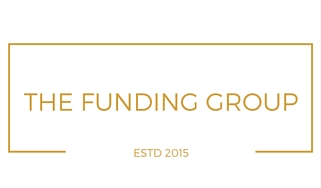The 30-year mortgage rate fell to 4.04 % in June 2019, the lowest level in 17 month. Many homeowners are now considering refinancing existing mortgages as rates drop.
According to banks across the country, home refinance applications are at their highest in three years.
Refinancing is an option if your mortgage rate is higher than 4 percent. A mortgage refinance may not be the right decision for everyone.
Talk to your lender before you submit your application. These four questions will help you make an informed decision on whether or not to refinance.
What’s your ultimate goal in refinancing?
Refinance is a popular way to save money. You may want to lock in a fixed rate of interest (rather than an adjustable) or lower your monthly payments. Refinancing does not guarantee you will reach your financial goals.
Locking in a lower rate of interest can help you save significant money. A $100,000 mortgage at a 6 per cent rate would be almost $44,000 less over 30 years than a similar mortgage at a 4 per cent rate.
Consider how long you will be in mortgage debt. Usually, the longer your debt is, the higher the interest rate you’ll pay. If you have a mortgage that has been in place for 10 years, and then you refinance it with a 30-year mortgage, your total debt will be 40 years.
It’s worth taking the time to calculate the interest you will pay over the 40-year period versus what you would pay if you took out a 30-year mortgage. It may be cheaper to pay the higher rate for a shorter period of time. You’ll save money over the long-term if you can afford the 15-year mortgage payments at a lower rate.
Lower monthly payments: Refinancing might be an option to reduce your monthly payment. Keep in mind, however, that you will likely pay more interest over the term of your loan. Paying off your mortgage as quickly as possible is the best way to save money. Refinancing is an option if you want a lower monthly payment, regardless of how long-term, but it could still be a viable option.
A fixed interest rates: If your current mortgage has an adjustable rate, a refinance to a fixed rate might be a good choice. Lock in a low rate without worrying about fluctuations over the next few year.
Also, make sure to limit the term of your loan so that you don’t end up with a long-term debt.
What is the cost of a home loan refinance?
Refinancing means getting a new mortgage on the same house with different terms. Just like you did when you obtained your mortgage, you will need to pay closing costs or fees to the lender when you refinance. It is important to understand the closing costs if you are trying to save money.
Closing costs typically amount to 2-5 percent of the loan’s total value. You may be able to finance closing costs through some lenders. This will lower your upfront costs, but increase the interest you will pay over the loan’s life.
An example: A $20,000 mortgage with an additional $6,000 would add $4,312.17 to interest over the next 30 years.
Ask your lender if they are able to offer discounts on closing costs. There are some fees that must be paid, like the appraisal fee, recording fee and title fee. Other fees, like origination, application and underwriting fees may be charged by lenders and could be reduced.
What length of time do you intend to remain in your home?
While refinancing your mortgage could save you money in the long-term, it could also cost you more money right now. Consider how long you intend to live in your home. Refinancing is worth it if you intend to stay in your home for five years or longer. It may not be worthwhile if you plan to move within the next two-years. An expert mortgage broker can help you determine your breakeven point.
Are you eligible to refinance your loan?
Refinanced mortgages are just as eligible as original mortgages. Your credit score, debt to income ratio and loan to value ratio (LTV) will all be considered by your lender. You will need to ensure your credit and credit score is in top shape to be eligible for the lowest refinance rates.
You can check your credit for free each year at annualcreditreport.com. To qualify for the best rates, your debt to income ratio (all monthly debt payments divided with your gross monthly income) should not exceed 43%.
You’ve probably built equity over time if you have been paying your mortgage for a while. This will increase your LTV ratio. It is the ratio of what you are borrowing to the property’s total value. Your LTV ratio will be lower if your home’s worth has increased since the purchase. Lenders typically look for an LTV ratio between 80 percent and 80 percent.
Conclusion
If you are able to reduce your mortgage payment or shorten the term of your loan, refinancing is a smart financial move. A lower rate does not always indicate a better deal, especially if your goal is to remain in your home for a long time.
A mortgage professional can help you make the right decision for your particular situation.

